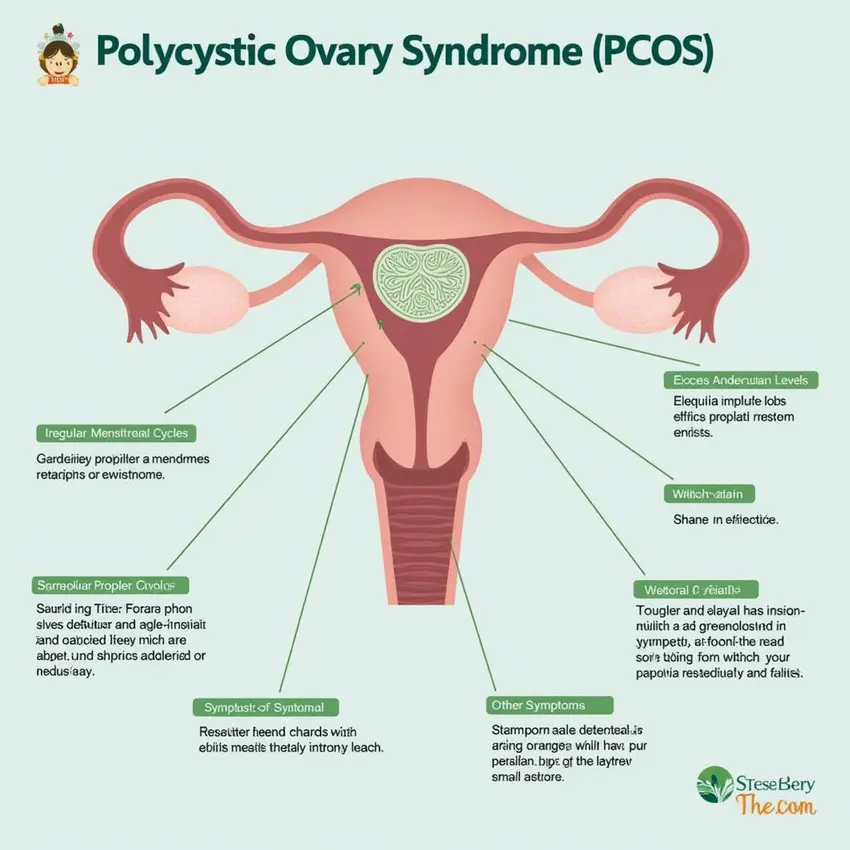What to Know About Polycystic Ovary Syndrome (PCOS)
Polycystic Ovary Syndrome (PCOS) is a complex endocrine disorder that affects a significant number of women of reproductive age. It is characterized by irregular menstrual cycles, excessive androgen levels, and polycystic ovaries. Understanding PCOS is crucial for early diagnosis and effective management.
What is PCOS?
PCOS is a hormonal imbalance that results in a variety of symptoms, impacting not only reproductive health but also metabolic and psychological well-being. The exact cause of PCOS is still unclear, but it is believed to involve a combination of genetic, hormonal, and environmental factors.
Symptoms of PCOS
The symptoms of PCOS can vary greatly among women, and they can include:
- Irregular Menstrual Cycles: Women with PCOS may experience irregular periods or even amenorrhea (absence of menstruation).
- Excess Androgen Levels: This can lead to symptoms such as hirsutism (unwanted facial and body hair), acne, and male-pattern baldness.
- Weight Gain: Many women with PCOS struggle with obesity or weight gain, which is linked to insulin resistance.
- Polycystic Ovaries: Although not everyone with PCOS will have cysts on their ovaries, some women do have enlarged ovaries with many small cysts.
- Other Symptoms: Fatigue, mood changes, and sleep apnea are also associated with PCOS.
Causes and Risk Factors
While the specific cause of PCOS is unknown, several factors may contribute. Genetic factors can play a role, as PCOS often runs in families. Insulin resistance is another significant factor; many women with PCOS have higher levels of insulin, which can lead to weight gain and further hormonal imbalances. Inflammation, unhealthy diet, and sedentary lifestyles are also associated with the development of PCOS.
Diagnosis of PCOS
Diagnosing PCOS typically involves a combination of medical history, physical examinations, blood tests, and possibly pelvic ultrasounds to assess the ovaries. The criteria commonly used include the Rotterdam criteria, which require two out of the following three criteria:
- Irregular or absent ovulation
- Evidence of excess androgens
- Polycystic ovaries
Managing PCOS
Effective management of PCOS often requires a multi-faceted approach. Lifestyle changes, such as adopting a balanced diet and regular exercise, can significantly reduce symptoms and improve overall health. For women experiencing infertility, medications such as clomiphene citrate may be prescribed to promote ovulation.
For cosmetic concerns like hirsutism, treatments can include hormonal contraceptives that reduce androgen levels and medications such as spironolactone. Metformin, a medication commonly used to treat type 2 diabetes, can also be beneficial in managing insulin resistance.
Psychological support is essential, too, as many women with PCOS may experience anxiety or depression. Therapy and support groups can provide valuable assistance.
Long-Term Health Risks
Women with PCOS face an increased risk of several long-term health issues, including type 2 diabetes, cardiovascular disease, and endometrial cancer due to prolonged unopposed estrogen exposure. Regular health screenings, including blood sugar levels, cholesterol checks, and blood pressure monitoring, are crucial for women with PCOS.
Final Thoughts
Polycystic Ovary Syndrome is a complex and often under-recognized condition. Greater awareness and understanding can lead to timely diagnosis and better management of symptoms. If you suspect you may have PCOS, it’s vital to consult a healthcare professional for a thorough evaluation and personalized treatment plan.

